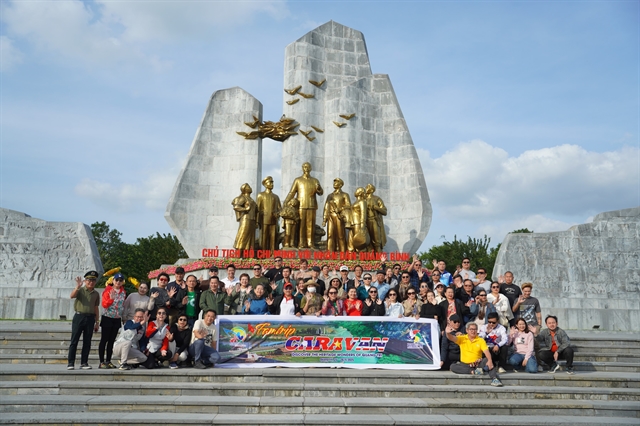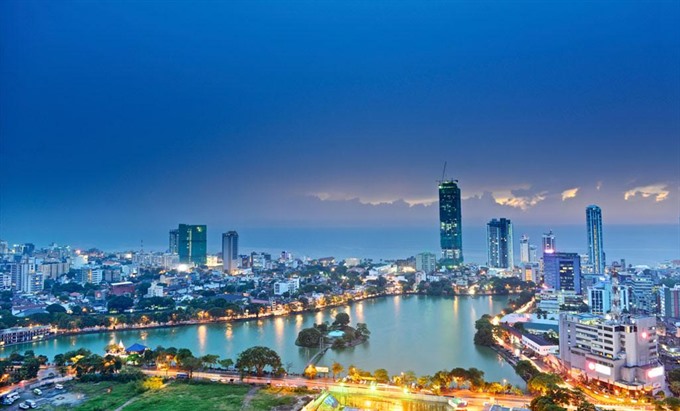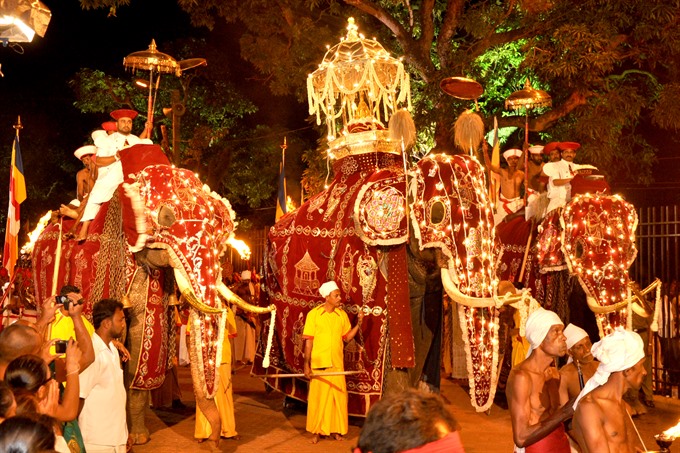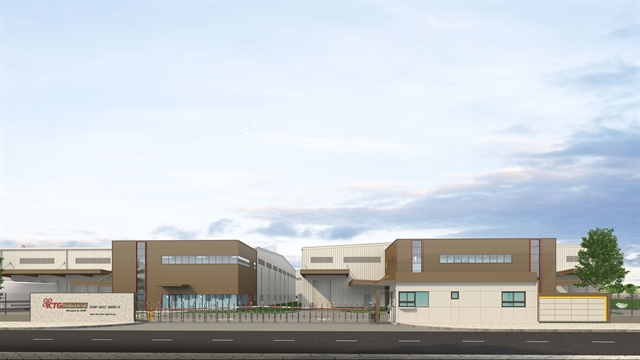 Life & Style
Life & Style

On occasion of 69th National Day of Sri Lanka today (on February 4), Ambassador Hasanthi Dissanayake says the island will use all its advantages to deliver sustainable development to its citizens.
 |
| Modern marvel: Colombo City is the commercial capital and largest city of Sri Lanka.— Photo courtesy of Sri Lanka’s Embassy |
On occasion of 69th National Day of Sri Lanka today (on February 4), Ambassador Hasanthi Dissanayake says the island will use all its advantages to deliver sustainable development to its citizens.
Sri Lanka, then called “Ceylon”, gained its independence from the British on 4th February 1948. The next day, a British newspaper editorial predicted a bright future for the country, expressing confidence that it would no doubt become the “Switzerland of the East.” Then, it was considered a model Commonwealth country with good education standards, a civil service largely consisting of trained locals with experience in representative government.
Unfortunately, the country was not able to steer itself towards economic development at full throttle, as it was engulfed in a civil war for over 30 years. Since the war ended in 2009, the Government of Sri Lanka has ushered in an era of good governance, sustainable development and national integration, and most importantly, the creation of a new political culture devoid of divisive politics that preserves the multi-ethnic and multi-cultural nature of its society.
Since ancient times, Sri Lanka has been a trading nation. Situated in the middle of the Indian Ocean as a central hub of the maritime Silk Route, the country has for many centuries welcomed traders and entrepreneurs from lands near and far. Now in the 21stcentury, Sri Lanka is once again emerging as an economic hub in South Asia, offering many opportunities for trade and commerce for international partners.
Sri Lanka hosted the World Economic Development Forum 2016 in Colombo, highlighting the nation’s openness to international business and setting a path towards an improved business environment. In this connection, as a founder member of the GATT as well as WTO, Sri Lanka has been fully committed to liberal and market-oriented economic policies introduced as early as in 1978 with the objective of achieving greater integration into the world economy.
New challenge
Sri Lanka is now faced with a new challenge: to go beyond the middle income status. Under new reforms, the country will create a background for the Sri Lankan entrepreneurs to enter global value chains, facilitate Small & Medium scale producers to reach the international market, encourage foreign enterprises to invest in Sri Lanka and also facilitate digitalization of economy to improve productivity and efficiency levels towards competing in the global economy.
Sri Lanka has already operational FTAs with Pakistan and India, while negotiations are underway for FTAs with Singapore and China. As a member of SAARC, Sri Lanka also enjoys free trading facilities with other South Asian countries under the South Asian Free Trade Area (SAFTA).
It is evident that through these agreements, Sri Lanka provides a stepping stone to reach out to a huge market. Given these circumstances, with its new economic reforms, country aims to emerge as the the economic hub of the region, a niche manufacturing destination to produce goods which plug into regional and global value chains.
Sri Lanka is emerging as a destination of choice for IT, BPO and KPO sectors and is ranked among the Top 25 Global Outsourcing Destinations by AT Kearney, while Colombo has been listed among the Top 20 Emerging Cities by the Global Services Magazine.
The country offers a rapidly growing niche workforce that is highly adaptable, innovative, English-speaking and loyal. Currently, over 75,000 are employed in the ICT industry. Foreign entities that have invested in Sri Lanka, like HSBC, Industrial & Financial Systems (IFS), Amba Research, RR Donnelley, Virtusa, and Millennium Information Technology (owned by London Stock Exchange). Among Globally recognized customers of Sri Lankan ICT products and services are JP Morgan, Google, Microsoft, Qatar Airways and Emirates, have already begun to tap local talent.
In this backdrop, Sri Lanka is emerging as one of the favourite investment destinations in the world. Strategically placed to benefit from a changing global marketplace, it is located equidistant between Europe and Far East on the major East-West shipping lanes and therefore has easy access to lucrative Middle Eastern and rising African markets.
It has high environmental standards in comparison with other developing countries in Asia, and investment is guaranteed by the Sri Lankan Constitution. This and the existence of many enabling laws to facilitate and protect investment are key reasons that attract foreign investment.
Sri Lanka has signed Avoidance of Double Taxation Agreements with 38 countries and Investment Promotion and Protection Agreements with 28 countries, including Việt Nam.
As per the Global Competitiveness Report 2016-2017, Sri Lanka is ranked 55t h out of 138 countries for the Overall Quality of National Infrastructure. Sri Lanka has also achieved the highest ranking in South Asia for Ease of Doing Business.
Mesmerising place
With regard to tourism, Sri Lanka offers a wide array of experiences from its golden beaches bordering deep blue calm oceans to bask in sun, to its misty mountains lined with endless rows of tea bushes and adorned with beautiful waterfalls cascading down from hilltops. The country also has a rich choice of archaeological heritages and many cultural festivities and places that would mesmerise even a seasoned traveller. The island is also very rich in bio-diversity and it is committed to taking good care of its fauna and flora.
The Sri Lankan tourism industry is one of the fast-growing sectors in the Sri Lanka with an increase of 162 per cent in the number of arrivals and a 413 per cent increase in tourism revenues between 2011 and 2016. A 143 per cent growth is expected in hotel growth between 2016 and 2020.
Sri Lanka was nominated one of the top 10 destinations to visit in 2016 by the Lonely Planet magazine.
On this occasion of celebrating our 69th Independence Day, the government of Sri Lanka is poised to engage the international community and usher in a new era of economic prosperity to its citizenry through sustainable development.—VNS
 |
| National treasure: Esala Perahera, also known as The Festival of the Tooth, is a grand festival celebrated with elegant costumes and is held in July and August in Kandy (a UNESCO World Heritage site), of Sri Lanka.— Photo courtesy of the Embassy of Sri Lanka |



.jpeg)
